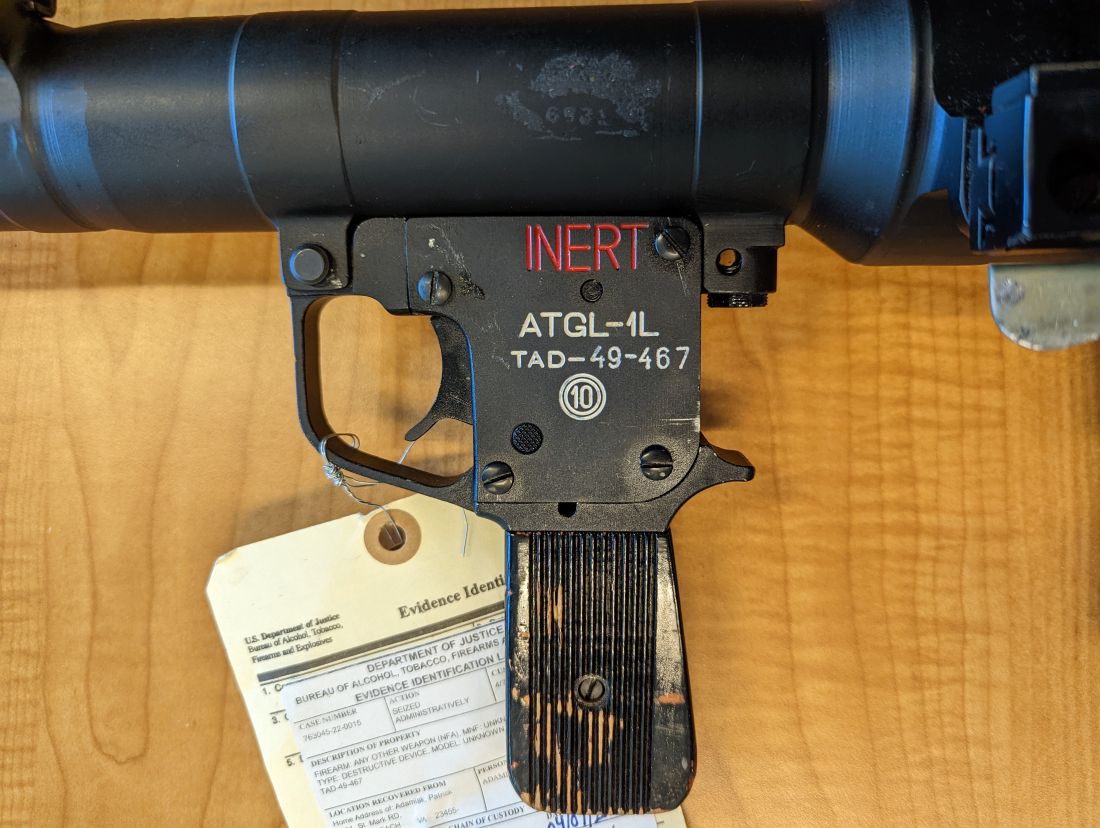The Case of Patrick “Tate” Adamiak: A Legal Battle Over Inert RPGs
In a peculiar case highlighting the complexities of firearm regulations, Patrick “Tate” Adamiak found himself serving a 20-year federal sentence due to the Bureau of Alcohol, Tobacco, Firearms, and Explosives (ATF) reengineering his inert Rocket-Propelled Grenade (RPG) launchers. This incident raises significant questions regarding the legality of non-firing military replicas and the actions of federal authorities.
Understanding Inert RPGs
For collectors and enthusiasts looking to enhance their display spaces, inert or non-firing RPGs are available on platforms like GunBroker.com, with prices ranging from $120 for inert RPG-2 rockets to $1,200 for a complete inert RPG-2 package. Importantly, these items do not require a Federal Firearm License for purchase as they are classified as non-firearms. Numerous RPGs on the market have undergone modifications ensuring they cannot function as weapons.
The Charges Against Adamiak
Adamiak’s troubles began when the ATF modified his collection of inert RPGs, enabling them to fire actual rounds. Consequently, he faced federal charges for possessing what the ATF termed “destructive devices.” Adamiak claims that the modifications applied to his inert devices—originally purchased legally as military collectibles—transformed them into illegal weapons. He noted, “The two RPGs are what added the most amount of time to my prison sentence.”
Background of the Case
An active-duty Navy E-6 at the time, Adamiak had a keen interest in military memorabilia, including various inert munitions. His RPGs, marked clearly as “Inert” and “Training Aid Dummy,” were part of a larger collection he showcased legally and openly over many years.
However, the prosecution classed these inert devices as potential missile systems, significantly affecting his sentencing. The legal justification for the enhanced sentence hinged on the perception of his RPGs contrary to their actual non-functional state, a maneuver which Adamiak argues had no precedent in U.S. law.
Legal Disputes and Misconduct Allegations
During the trial, the prosecution, led by U.S. Attorneys Jessica Aber and Victoria Liu, presented the modified RPGs as equivalent to fully functional military weapons. Central to this prosecution was ATF Firearms Enforcement Officer Jeffrey Bodell, who testified that the modifications he made to Adamiak’s devices were irrelevant to their classification as destructive devices.
Critically, Bodell reconfigured both the inert RPG and a toy STEN submachine gun in such a way that they could fire. His actions spurred a debate about the ethics and legality of his modifications, with Adamiak pointing out, “An RPG is a very simple and crude device.” Adamiak emphasized that there were glaring holes drilled into the devices, which further negated their functionality as weapons.
Public Reaction and Implications
This case not only illustrates the complexities involved in the classification of weaponry but also reflects broader concerns regarding governmental authority and individual rights. Adamiak maintains that his inert RPGs were mischaracterized and that their transformation into functioning weapons by the ATF raises significant questions about regulatory practices.
Despite presenting arguments backed by legal precedents, wherein a defendant must possess all essential parts for a weapon to be considered functional, Adamiak’s claims fell through. His case highlights a profound disconnect between the law as practiced and the realities faced by collectors and enthusiasts.
Conclusion: A Misguided Prosecution?
As the conversation around weapon regulations continues, the narrative surrounding Adamiak serves as a poignant reminder of the intricacies of firearms law. Collectors of militaria and inert military replicas must navigate a landscape ripe for misunderstanding and legal extremes, underscoring the importance of clear definitions and fair application of the law. This ongoing legal saga presents a critical opportunity for dialogue about best practices and fairness in firearm regulations.
This story underscores the necessity for continued scrutiny of legal interpretations and the ethical implications of government actions—a pressing concern for advocates of gun rights and individual freedoms.

